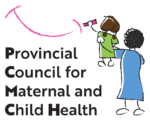Preeclampsia
Preeclampsia is a serious health condition that can develop during pregnancy, usually after the 20th week, and sometimes even shortly after childbirth. It happens when you have high blood pressure and high levels of protein in the urine. If not treated, it can lead to seizures, strokes, organ damage, or even death for the mother […]
